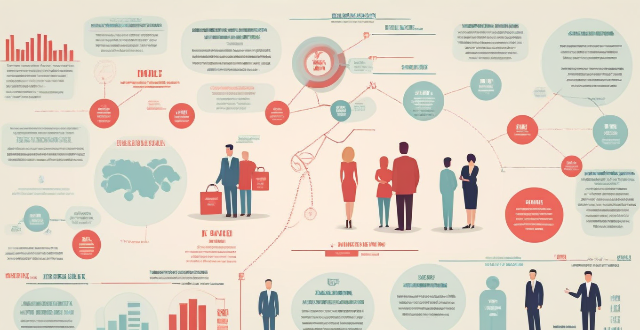Assets Benefit

How can I protect my assets from creditors or lawsuits ?
When it comes to protecting your assets from creditors or lawsuits, there are several strategies you can consider. These strategies aim to safeguard your wealth and ensure that you have financial security in case of legal actions against you. Here are some key steps to take: ### 1. **Create a Trust** A trust is a legal entity that allows you to transfer assets into it for the benefit of a third party, known as the beneficiary. By placing your assets into a trust, they are no longer directly owned by you, making them less vulnerable to creditors or lawsuits. There are different types of trusts, such as: - Revocable Living Trust: You can modify or revoke this type of trust during your lifetime. - Irrevocable Trust: Once created, you cannot change or cancel this type of trust. - Special Needs Trust: Designed for individuals with special needs, this trust helps them qualify for government benefits while still having access to funds for other expenses. ### 2. **Establish Limited Liability Entities** Forming limited liability companies (LLCs) or corporations can help protect your personal assets from business-related debts and lawsuits. These entities act as separate legal entities, meaning that their liabilities do not extend to your personal finances. Examples include: - Single Member LLC: Suitable for sole proprietors looking to limit their personal liability. - Multi-Member LLC: Ideal for partnerships where multiple members contribute to the business. - S Corporation: Offers pass-through taxation and limits shareholder liability to their investment in the company. ### 3. **Purchase Insurance** Having adequate insurance coverage is essential in protecting your assets from unexpected events. Make sure you have the following types of insurance policies: - Liability Insurance: Covers damages or injuries caused by you or your property. - Umbrella Policy: Provides additional liability coverage beyond your standard policies. - Homeowner's Insurance: Protects your home and belongings from damage or loss due to various perils. - Auto Insurance: Covers damages and injuries related to vehicle accidents. ### 4. **Diversify Your Assets** Spreading your wealth across different asset classes can help minimize the impact of any single lawsuit or creditor claim. Consider investing in: - Real Estate Investment Trusts (REITs): Allows you to invest in real estate without owning physical property. - Stocks and Bonds: Diversify your portfolio with various securities to reduce risk. - Precious Metals and Cryptocurrencies: Non-traditional assets that may offer protection against market volatility. ### 5. **Consult with Professionals** Before implementing any asset protection strategy, it's crucial to consult with professionals who specialize in this area, such as attorneys, financial advisors, and accountants. They can guide you through the process, ensuring that you comply with all legal requirements and maximize the effectiveness of your chosen strategies.

What is the difference between a will and a trust ?
The text discusses the differences between wills and trusts in estate planning, highlighting key areas where they diverge. A will is a legal document outlining distribution wishes for assets after death, requiring witnesses and taking effect posthumously. It allows control over assets during one's lifetime and goes through probate, a public process. Wills are flexible and generally less costly to create but offer no tax benefits. Conversely, a trust involves transferring property to a trustee for beneficiaries, with creation and effectiveness varying. Trusts can avoid probate, offering privacy and potential tax benefits but at a higher initial cost and less flexibility, especially if irrevocable. Choosing between them depends on individual needs and preferences.

What is the process for distributing assets after someone dies ?
The process for distributing assets after someone dies is known as probate. It involves filing the will, notifying beneficiaries and heirs, inventorying assets, paying off debts and taxes, and then distributing the remaining assets according to the terms of the will or state law if there is no will. The executor or administrator is responsible for managing the deceased person's estate and all potential beneficiaries and heirs must be notified of their rights and responsibilities.

How do I ensure that my digital assets are handled after my death ?
Managing digital assets after death requires careful planning and regular updates to keep pace with technological changes. This guide outlines steps to take to ensure your online presence is handled according to your wishes, including inventorying assets, choosing a digital executor, including assets in your will, using digital legacy services, setting up access and instructions, and reviewing and updating plans regularly. By following these steps, you can protect your online legacy and provide clarity for your loved ones.

What documents are typically included in an estate plan ?
An estate plan is a collection of legal documents that outline how an individual's assets and property will be distributed after their death. These documents can include various types of legal instruments, each serving a specific purpose in the estate planning process. Here are some of the most common documents included in an estate plan: - Last Will and Testament: A legal document that states how a person's property and assets will be distributed after their death. - Durable Power of Attorney: A legal document that grants authority to another individual (agent) to act on behalf of the principal in financial matters. - Healthcare Power of Attorney: A legal document that designates someone to make healthcare decisions on behalf of the principal if they are unable to do so. - Living Will: A document that provides instructions about your wishes for medical treatment and end-of-life care. - Trusts: A legal entity that holds and manages assets for the benefit of one or more individuals (beneficiaries). - Beneficiary Designations: The process of naming who receives the proceeds of a bank account, retirement account, or life insurance policy upon the account holder's death. - Letter of Intent: A non-legal document that provides additional information about personal wishes, sentimental items, and instructions for final arrangements.

What are the potential economic benefits of investing in climate adaptation ?
Investing in climate adaptation can bring about several potential economic benefits, including reduced costs of disaster response and recovery, increased resilience of infrastructure and assets, enhanced productivity and efficiency, new business opportunities, and improved health outcomes. These benefits make it an essential component of any comprehensive strategy for addressing climate change and its impacts on our economy and society.

How can developing countries benefit from implementing renewable energy solutions ?
Renewable energy solutions offer significant benefits for developing countries, including reduced energy costs, job creation, improved health and environmental quality, increased energy security, and climate change mitigation. By investing in renewable energy infrastructure, these countries can build more sustainable and prosperous futures for themselves and their citizens.

How do developing countries benefit from the Clean Development Mechanism (CDM) ?
How Developing Countries Benefit from the Clean Development Mechanism (CDM) The Clean Development Mechanism (CDM) of the Kyoto Protocol brings numerous benefits to developing countries, including technology transfer, sustainable development, and environmental advantages. It also enhances their capacity building, global engagement, and influences policy-making towards sustainability. Overall, the CDM aids in reducing emissions while fostering economic growth and environmental conservation.

What is probate, and how can I avoid it ?
This text discusses probate, the legal process of transferring a deceased person's assets to their heirs or beneficiaries. It explains why many choose to avoid probate, which can be time-consuming and costly, and outlines various methods for doing so, such as creating a revocable living trust, joint tenancy with right of survivorship, pay-on-death accounts, transfer-on-death designations, gifting assets during one's lifetime, designating beneficiaries on retirement accounts and life insurance policies, using a will with a probate avoidance clause, and considering state-specific strategies. The text emphasizes the importance of careful planning and consulting professionals to ensure assets are distributed according to one's wishes without court interference.

How do I create a comprehensive estate plan ?
Creating a comprehensive estate plan is essential to ensure your assets are distributed according to your wishes after you pass away. Here are some steps to help you create a comprehensive estate plan: 1. Determine your goals and objectives, such as who you want to inherit your assets and how you want them distributed. 2. Gather information about all your assets, including real estate, bank accounts, investments, life insurance policies, and personal property. 3. Choose beneficiaries for your assets, including individuals, charities, or trusts. 4. Consider tax implications, such as federal and state estate taxes, gift taxes, and generation-skipping transfer taxes. 5. Create legal documents such as a will, power of attorney, healthcare proxy, and living will to ensure your wishes are carried out in case of incapacity or death. 6. Set up trusts to manage your assets during your lifetime and distribute them after your death. 7. Review and update your plan regularly to ensure it remains current with changes in your life. Working with a qualified professional can help ensure that your estate plan meets your needs and achieves your desired outcomes.

How can women protect their assets and ensure long-term financial security ?
The article provides a list of strategies that women can employ to ensure their financial security over the long term. These include building an emergency fund, investing in retirement accounts, purchasing life insurance, creating a will, considering long-term care insurance, educating oneself about finance, working with a financial advisor, and prioritizing career development. Each of these steps is crucial in its own way for safeguarding one's assets and ensuring financial stability.

What role do sponsors play in sports charity events, and how do they benefit from it ?
The role of sponsors in sports charity events is crucial for the success of these events. Sponsors provide financial support, enhance brand awareness, promote corporate social responsibility, and create networking opportunities. In return, they benefit from increased exposure and brand recognition, building relationships with key stakeholders, potential tax benefits, and measurable results. Overall, sponsoring sports charity events allows companies to contribute to a worthy cause while positioning themselves as responsible corporate citizens committed to making a positive impact on society.

Do I need a lawyer to create an estate plan ?
Estate planning is important for ensuring that your assets are distributed according to your wishes after you pass away. While it is possible to create an estate plan without a lawyer, working with a legal professional can provide numerous benefits such as legal expertise, customized plans, and peace of mind. However, if you have a simple estate with few assets and no complicated family dynamics, creating a basic estate plan using online tools or templates may be sufficient. It is still important to consult with a lawyer to ensure that your plan meets all legal requirements and addresses any potential issues.

How can we ensure that climate adaptation strategies are equitable and benefit all members of society ?
Ensuring equitable climate adaptation strategies is crucial to protect vulnerable groups and future generations from disproportionate impacts of climate change. Key considerations include recognizing inequalities, involving affected communities in decision-making, fairly distributing costs and benefits, building capacity through education and skills development, mainstreaming equity into policies, and focusing on long-term sustainability.

How does the issuance of green bonds benefit environmental projects ?
Green bonds are financial instruments designed to fund environmentally friendly projects, offering benefits such as increased funding opportunities, improved project visibility, long-term financing, risk mitigation, market growth and innovation, policy and regulatory support, and community and environmental impact. These bonds not only benefit the specific environmental projects they aim to fund but also contribute to a broader shift towards sustainable finance and environmental stewardship.

How do DeFi tokens work ?
Decentralized Finance (DeFi) tokens are digital assets operating on blockchain technology, designed to facilitate financial transactions without intermediaries. These tokens can represent various assets like currencies, commodities, and cryptocurrencies. Key features of DeFi tokens include decentralization, smart contracts, and interoperability. They work through token issuance, utility within their respective projects or platforms, and governance mechanisms allowing holders to vote on important decisions related to the project's development. Benefits of DeFi tokens include accessibility, transparency, and innovation in financial products and services.

How does space exploration benefit humanity ?
The benefits of space exploration for humanity include technological advancements, economic growth through job creation and commercial opportunities, global collaboration fostering peace, scientific discoveries about our universe, inspiration and education for future generations, preserving Earth by monitoring environmental changes, and national security measures. These benefits touch every aspect of human life, making space exploration a significant investment in our collective future.

Can rural areas benefit from 5G network deployment ?
The advent of 5G technology promises to revolutionize the way we live, work, and communicate. With its faster speeds, lower latency, and increased capacity, 5G has the potential to transform various sectors, including healthcare, education, transportation, and more. However, the question remains: can rural areas also benefit from 5G network deployment? Benefits of 5G in Rural Areas: - Improved Connectivity: Faster Internet Speeds and Reduced Latency - Enhanced Quality of Service: Better Coverage and Increased Capacity - Economic Development: Job Creation and Business Opportunities - Social Benefits: Education and Healthcare Challenges and Considerations: - Infrastructure Costs: High Initial Investment and Maintenance Expenses - Geographic Barriers: Topography and Population Density - Regulatory Hurdles: Spectrum Allocation and Compatibility Issues Conclusion: While there are certainly challenges associated with deploying 5G networks in rural areas, the potential benefits are significant. Improved connectivity, enhanced quality of service, economic development, and social benefits all stand to gain from the introduction of 5G technology. As long as these challenges are addressed through careful planning, collaboration between stakeholders, and appropriate investment, rural areas can indeed benefit from 5G network deployment.

Can small businesses benefit from Cross-Border Payment ?
Cross-border payments are increasingly vital in the global economy, enabling businesses to tap into new markets. Small businesses can benefit from this trend by expanding market access, increasing revenue potential, improving customer experience, reducing costs, and gaining a competitive advantage. As technology continues to evolve, small businesses should consider taking advantage of cross-border payments to grow and succeed on a global scale.

How can I maximize my retirement income from pension plans ?
The article provides strategies for maximizing retirement income from pension plans, including understanding the types of plans, optimizing contributions, investing wisely, taking advantage of tax benefits, and planning for retirement expenses. It emphasizes the importance of starting early, diversifying investments, and regularly monitoring and adjusting them. The article also highlights the benefits of tax-deferred growth and potential tax-free withdrawals. By following these strategies, individuals can help ensure a comfortable retirement with a steady stream of income from their pension plans.

What industries benefit most from carbon credit systems ?
Carbon credit systems provide financial and competitive advantages to industries that reduce greenhouse gas emissions. Renewable energy producers, energy-efficient manufacturers, carbon capture and storage tech companies, forestry and land use management, and the transportation sector are among the biggest beneficiaries. These industries can earn additional income, attract investment, foster innovation, and gain market share by participating in carbon credit markets, thus contributing to a sustainable future.

How can sports leadership training programs benefit coaches and athletes ?
Sports leadership training programs can greatly benefit coaches and athletes by enhancing their skills and knowledge, leading to improved performance on and off the field. Coaches can improve communication, leadership qualities, motivation techniques, goal setting, and tactical knowledge, while athletes can develop self-confidence, teamwork skills, responsibility, time management, and mental toughness.

What role does life insurance play in estate planning ?
Life insurance is a crucial tool in estate planning, offering solutions for liquidity needs, tax considerations, charitable giving, business succession, income replacement, and wealth preservation. It helps beneficiaries gain immediate access to cash, manage estate taxes, support philanthropic goals, facilitate business transitions, replace lost income, and transfer wealth efficiently. Life insurance policies can be tailored to fit individual needs, making them a versatile component of any comprehensive estate plan.

How can developing countries benefit from international cooperation ?
Developing countries can benefit from international cooperation in multiple ways, including access to technology and innovation, economic growth and trade opportunities, improved healthcare and education, environmental sustainability, and political stability and peace. Technology transfer, research collaborations, capacity building, trade agreements, foreign direct investment, infrastructure development, medical aid, educational exchange programs, renewable energy projects, conservation efforts, clean technology transfer, conflict resolution, democratic institution building, and legal and judicial reform are some of the key areas where developing countries can gain from working with their international counterparts.

Why is it important to have an estate plan ?
Having an estate plan is crucial for ensuring your wishes are honored, minimizing family disputes, and providing clarity on handling affairs.

How does exercise benefit employees in the workplace ?
Exercise benefits employees in the workplace by improving health and well-being, increasing productivity, promoting teamwork, and providing long-term business advantages such as lower healthcare costs and higher employee retention.

How can businesses benefit from implementing digital identity solutions ?
Digital identity solutions offer businesses enhanced security, improved customer experiences, increased efficiency, and scalability. They reduce fraud risks, protect data, streamline onboarding, personalize services, automate processes, and provide reliable data for better decision-making. These benefits help businesses stay compliant with regulations, save costs, and adapt to evolving technology.

How do inclusive policies benefit society as a whole ?
Inclusive policies are designed to promote equality, fairness, and social cohesion by eliminating barriers and discrimination. These policies benefit society as a whole by ensuring equal access to resources, services, and opportunities for all individuals regardless of their background, abilities, or circumstances. In addition to promoting equality and fairness, inclusive policies also enhance social cohesion by fostering a sense of belonging and mutual respect among different groups within society. This leads to reduced discrimination, increased tolerance, and strengthened community bonds. Inclusive policies also have positive economic outcomes by expanding the talent pool, reducing poverty, and stimulating consumer spending. Furthermore, these policies foster innovation and creativity by providing diverse perspectives, encouraging risk-taking, and promoting collaboration. Finally, inclusive policies can enhance a country's global competitiveness by attracting talent, improving international relations, and driving economic growth.

How can businesses benefit from investing in Climate-Smart Technologies ?
Businesses can benefit from investing in climate-smart technologies by improving efficiency, reducing costs, gaining a competitive edge, staying compliant with regulations, mitigating risks associated with climate change, and attracting talent.

How can developing countries benefit from climate information sharing ?
Climate information sharing is vital for developing countries to address climate change challenges, offering benefits such as improved agricultural planning, disaster risk reduction, public health protection, economic development, and informed policy-making. By utilizing this data, these nations can adapt to environmental changes, build resilience, and ensure sustainable growth.